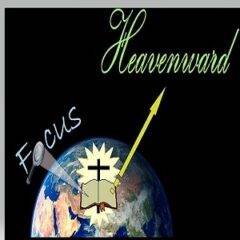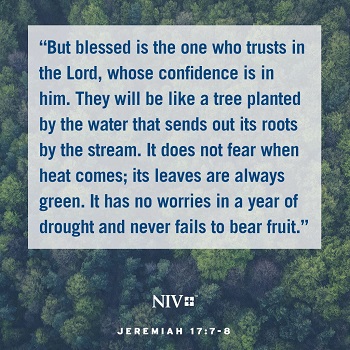Ruth responds in humility to the kindness of Boaz, she did not expect or think she deserved his favor. After Boaz assured her of her safety and welcome in his fields, verse 10 describes her reaction.
Ruth 2:10 Then she fell on her face, bowing to the ground and said to him, "Why have I found favor in your sight that you should take notice of me, since I am a foreigner?"
Ruth cast her eyes down being overwhelmed and prostrated herself before Boaz. She placed herself in a position of inferiority. The culture of that day would signify her behavior as one of reverence and gratitude towards Boaz. We see this same posture when Joseph was governor and his brothers came needing food (Genesis 42:6). Also, in Matthew 2:11 when the Magi presented gifts to Jesus. There are many accounts of showing humility and reverence in the Bible.
Consider much of what we see today in the attitude of individuals. There is a permeating attitude of deservedness in our culture. We get caught up in wondering why someone did not treat us better, or the idea that something is not fair. We want accolades for who we are and what we have accomplished. We feel slighted when we are not recognized by individuals who are placed above us. Basically, we often think higher of ourselves than we ought. In fact, a humble attitude is easily overlooked in the world, even considered weak. Yet, the example we are shown throughout God’s word is to have a heart of humility, the opposite of pride and arrogance and deservedness.
Ruth questioned Boaz about his kindness to her especially because she was not from Bethlehem. Perhaps she thought Jewish law may not apply to her in gleaning the fields. Remember, the Jewish nation disdained the Moabites who were known as enemies of God. Boaz however shows kindness where kindness needs to be shown. Are we able to say this of ourselves? Or are we selective, or too busy, or consider it to be someone else’s job? Do we show mercy only to the extent we consider necessary? Are we willing to help others where they need help?
Read Jesus’ words in Matthew 25:35-36, “For I was hungry, and you gave Me [something] to eat; I was thirsty, and you gave Me drink; I was a stranger, and you invited Me in; naked, and you clothed Me; I was sick, and you visited Me; I was in prison, and you came to Me”.
James 2:15 says, “If a brother or sister is without clothing and in need of daily food, and one of you says to them, "Go in peace, be warmed and be filled," and yet you do not give them what is necessary for [their] body, what use is that”?
1John 3:16-18 tells us, “We know love by this, that He laid down His life for us; and we ought to lay down our lives for the brethren. But whoever has the world's goods, and beholds his brother in need and closes his heart against him, how does the love of God abide in him? Little children, let us not love with word or with tongue, but in deed and truth”.
We are to have hearts of humility and thankfulness when kindness is shown towards us, understanding we are undeserving of such mercy. We are reminded to show kindness and grace towards others when we see a brother or sister in need. Learning to say thank you and learning to have eyes and actions that reach out to others is opposite of the world’s picture of service towards one another. Where do we stand – in the world or in the Word?
Moving on to verse 11 in Chapter Two of Ruth, think carefully for a moment and ask yourself these questions - What is your reputation? What characteristics would be used by others to describe you?
Ruth 2:11 And Boaz answered and said to her, "All that you have done for your mother-in-law after the death of your husband has been fully reported to me, and how you left your father and your mother and the land of your birth, and came to a people that you did not previously know.
When Ruth questioned his kindness to her, Boaz proceeded to recall what had been relayed to him about her actions. The words ‘fully reported’ mean what he had heard stood out to him as her circumstances were explained. Rewind a bit and recall that Ruth had also lost her husband just as Naomi did. What hasn’t been recorded for us is her lamenting over her own situation. She must have experienced grief yet it doesn’t seem to be her focus. Instead, her example was to care for her mother-in-law who had lost her husband and both her sons. Ruth relinquished any possible support or acceptance she may have received from staying in her home town, and she followed Naomi into a foreign land and culture and professed faith in the God of the Jewish nation. Ruth heard God’s call and responded by leaving all behind.
Luke 14:27, 33 "Whoever does not carry his own cross and come after Me cannot be My disciple. "So therefore, no one of you can be My disciple who does not give up all his own possessions.
Matthew 16:24 Then Jesus said to His disciples, "If anyone wishes to come after Me, let him deny himself, and take up his cross, and follow Me.
Luke 9:23 And He was saying to [them] all, "If anyone wishes to come after Me, let him deny himself, and take up his cross daily, and follow Me.
God had allowed Ruth to understand the necessity of trusting in Him alone for all things. This shouldn’t prompt you to walk away from your home, job, family and all that is part of your immediate life. However, consider what comes first in your life? If you were to lose any of the persons or things familiar to you, would you be able to continue with a heart of trust and praise for God? Unfortunately, people often place their purpose in everything except the one constant we have – Jesus. Then, when loss knocks at the door, meaning and security and happiness dissipate and life’s focus is lost also. God knows us well and commands us to place Him at the forefront of our existence. Because of Jesus, we live. All lasting joy is found in Him alone. We praise God for the moments of laughter, and sweet memories and relationships and numerous blessings poured on our lives yet we must be prepared and willing to hold all things loosely. Only then can we fully grasp what is truly important. And only then will we learn to truly enjoy God’s blessings. Consider this – if we are always busy trying to hang on to something or control a situation, or we are in fear of losing a person or memory, how much are we able to relax and simply delight in the moments?
John 12:26 reads, “If anyone serves Me, let him follow Me; and where I am, there shall My servant also be; if anyone serves Me, the Father will honor him”.
Ruth’s actions preceded her reputation. In Ruth 1:16 we read of Ruth’s commitment and intentions, “But Ruth said, "Do not urge me to leave you [or] turn back from following you; for where you go, I will go, and where you lodge, I will lodge. Your people [shall be] my people, and your God, my God”.
So Boaz had been previously informed of Ruth’s pious behavior and desire to follow the God of Israel. He was impressed by what he had heard and this showed in his special kindness to her. This confirms the righteous character of Boaz also – that he was a man of God, esteeming those who follow God. Doing what God desires will always lead to blessing, perhaps not tangible in this life, but always to the reward of an eternal future in heaven. In following the God of the Jewish nation, Ruth had denounced the idols of Moab, the land of her birth and family. Any comfort or security she may have found in Moab was left behind. Her sincere choice to follow the one true God was evident in her actions. Her sole dependence was placed upon God for His provision and protection. Ruth’s actions caused Boaz to form a favorable impression of her faith and virtue.
Psalm 37:5 says, “Commit your way to the Lord, trust also in Him, and He will do it”. Also read Psalm 55:22 which says, “Cast your burden upon the Lord, and He will sustain you; He will never allow the righteous to be shaken”. Read the words of Jesus to Peter in Luke 18:28-30, “And Peter said, “Behold, we have left our own [homes,] and followed You.” And He said to them, “Truly I say to you, there is no one who has left house or wife or brothers or parents or children, for the sake of the kingdom of God, who shall not receive many times as much at this time and in the age to come, eternal life”.
Think back again to what Ruth left behind. In leaving Moab, it is possible she also left the possibility of being remarried. She was an outsider in Bethlehem and worse, she was from a land that was looked down upon because of its heathen gods. Leaving the town of her birth very well may have been like putting a seal on her fate as a single woman living in poverty forever. The essence here is Ruth did not just leave one possibility for another, she left all chances for a bright future for a plethora of unknowns. Each of us needs to come to Jesus willing to forsake all things that will vie for our attention. There is a daily, and even moment by moment, pushing away of the world from grabbing hold of us. Read Jesus’ words in Luke 14:33, “So therefore, no one of you can be My disciple who does not give up all his own possessions”.
We live fairly easy lives in comparison to the cultures of Biblical times. There is little true religious persecution in America. Most of us are not forced to choose between family and faith. And even in the small percentage of those who have had to make this choice, who would you rather please? Who do you fear most? Man or God? There are many verses that tell us to fear God above all else. Here is just one of them, "And to man He said, 'Behold, the fear of the Lord, that is wisdom; and to depart from evil is understanding”, Job 28:28. So then, what holds us back? What are you afraid to let go of in order to follow Jesus with your whole heart? We cannot slice salvation like a pie – a small piece for now, another later – it’s all or nothing.
In Ruth 2:12, Boaz gives Ruth a blessing. “May the Lord reward your work, and your wages be full from the Lord, the God of Israel, under whose wings you have come to seek refuge.”
What stood out the most as I first read this verse was the repetition of God’s name – the Lord …, the Lord, the God of Israel. Perhaps Boaz is reiterating to Ruth the true source of her blessings. The Lord rewards us; the Lord blesses us. It is not our hard work that accomplishes anything but the ability to work hard which comes from God. It is not our intelligence that garners our understanding but the intelligence that God gives us. We each need to be reminded where glory and honor is due, not at the hands of men but in God’s care for us. Boaz certainly knew Ruth’s background of idol worship and that she was a newer convert to the Jewish faith so maybe he was making the most of an opportunity to encourage Ruth to continue to trust in God, the one true God of Israel.
When people are thankful towards you for serving them, how do you respond? This is a great chance to speak of God’s blessings and care for His children. Do we turn praise towards God or accept it for ourselves? What is your motivation in serving? Remember the warning given in Mathew 6:1, “Beware of practicing your righteousness before men to be noticed by them; otherwise you have no reward with your Father who is in heaven”. Boaz refers to God as the Lord Jehovah and the God of Israel – the eternal Lord, and judge and ruler of the Jewish people. There was no mistake who Boaz worshiped and served.
Consider how exciting it is to watch someone learn to trust God. Imagine the blessing of knowing Ruth’s background and seeing her confidently move forward in her faith. God has purposed each step Ruth has taken and will continue to do so as she takes refuge in Him. Boaz knows this and Ruth must be marveling at God’s provision towards her and Naomi. As you take a moment to rewind circumstances in your own life, are you able to see the protection of the God who loves you? Do you find peace and security in His hands? Ruth 2:12 says, “the God of Israel, under whose wings you have come to seek refuge”. These words remind us that God is our refuge. He is the one we should flee to for protection. He is the one who offers true hope. Is your trust in Him alone? Where do you go for protection?
Psalm 17:8 Keep me as the apple of the eye; Hide me in the shadow of Thy wings,
Psalm 36:7 How precious is Thy lovingkindness, O God! And the children of men take refuge in the shadow of Thy wings.
Ps 57:1 (For the choir director; [set to] Al-tashheth. A Mikhtam of David, when he fled) (from Saul, in the cave.) Be gracious to me, O God, be gracious to me, for my soul takes refuge in Thee; And in the shadow of Thy wings I will take refuge, until destruction passes by.
Ps 63:7 For Thou hast been my help, And in the shadow of Thy wings I sing for joy.
God will fully supply our needs as we rely upon Him. Boaz’ response to Ruth gives us further evidence of her true conversion to Naomi’s God because her faith is seen in her actions. Hebrews 11:6 says, “And without faith it is impossible to please [Him], for he who comes to God must believe that He is, and [that] He is a rewarder of those who seek Him”.






